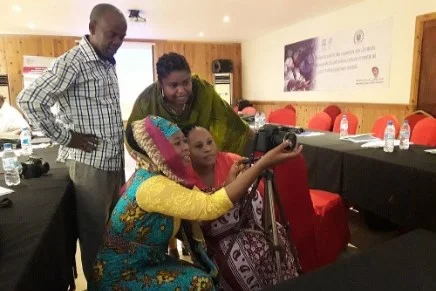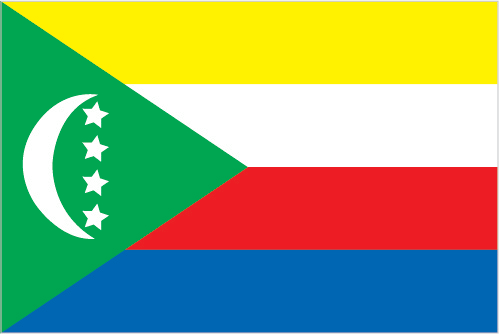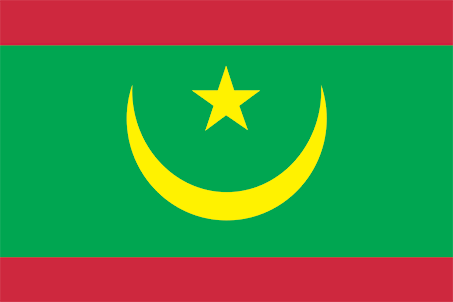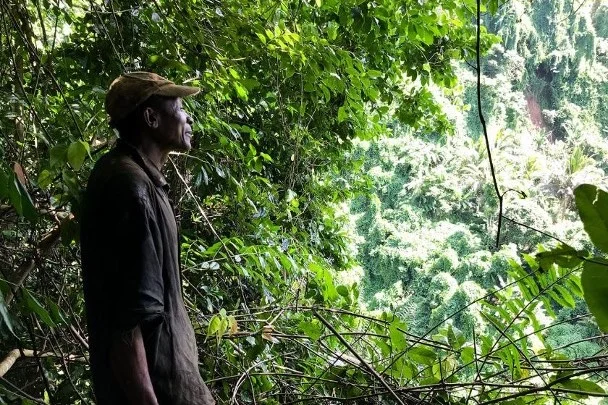Supporting the efforts of the Union of the Comoros to safeguard and protect its intangible cultural heritage

The Department of Culture and Tourism – Abu Dhabi contributed to the successful completion of a cultural initiative aimed at supporting the efforts of the Union of the Comoros to preserve and protect its living heritage.
The project “Enhancing the necessary capacities in the Comoros Islands to safeguard intangible cultural heritage for sustainable development,” implemented by UNESCO with the support of the Department of Culture and Tourism – Abu Dhabi, resulted in the creation of the country’s first national inventory list, which now includes 15 elements of intangible cultural heritage.
The project included documentation and research activities, awareness campaigns, and a community inventory of the cultural heritage of the Comoros Islands, which contributed to enhancing the country’s capacity to safeguard its intangible cultural heritage in line with the UNESCO Convention for the Safeguarding of the Intangible Cultural Heritage.
At the end of the project, UNESCO provided advisory services to the Union of the Comoros in policy development and contributed its expertise to strengthen the institutional and legal frameworks for safeguarding intangible cultural heritage in the country, as well as conducting specialized training for various stakeholders involved in the preservation of this heritage.
The project, which lasted from November 2017 to December 2019, was launched after UNESCO conducted an assessment of the small island state’s capacity to document its heritage, with support from the Department of Culture and Tourism – Abu Dhabi.
His Excellency Mohamed Khalifa Al Mubarak, Chairman of the Department of Culture and Tourism – Abu Dhabi, said: “Our main mission at the Department of Culture and Tourism – Abu Dhabi is to preserve, enhance, and safeguard culture in all its forms and through various channels, with the aim of preserving it for future generations and for the benefit of all. The Emirate of Abu Dhabi attaches special importance to cultural issues, as we recognize the importance of culture and its ability to bring about radical change and bridge communication between nations and minds.”
He added: “Preserving the cultural heritage in the Comoros Islands was not only a national concern, but also an important global issue. In our efforts to establish Abu Dhabi as a vital incubator for various cultures, we have faced many challenges over the years, especially in terms of preserving valuable heritage. We believe at the Department of Culture and Tourism – Abu Dhabi that we are all responsible for harnessing and safeguarding culture as a force capable of bringing about the necessary change for the progress and unity of humanity. We are pleased with the success of this project, which will support the Comoros Islands in preserving and protecting its treasures for future generations.”
The project concluded with a special ceremony in the capital, Moroni, organized by UNESCO in collaboration with the Ministry of Youth, Sports, Vocational Integration, Arts, and Culture, and the Ministry of National Education, Higher Education, and Scientific Research. The ceremony included a photo exhibition and interactive videos showcasing the living heritage of the Comoros Islands, as well as live performances of intangible cultural heritage practices for school students and the general public.
It is worth mentioning that the Department of Culture and Tourism – Abu Dhabi has previously supported similar projects, with the most recent being a five-day training course organized by UNESCO in November last year in Ramallah under the title “Enhancing National Capacities to Protect Palestinian Cultural Heritage.” The course was attended by 30 Palestinians from selected governmental and non-governmental institutions from all over Palestine, with the support of the Department of Culture and Tourism – Abu Dhabi. The effective implementation of the UNESCO Convention for the Safeguarding of the Intangible Cultural Heritage, adopted in 2003, was included in the training.
 Algeria
Algeria Bahrain
Bahrain Comoros
Comoros Djibouti
Djibouti Egypt
Egypt Iraq
Iraq Jordan
Jordan Kuwait
Kuwait Lebanon
Lebanon Libya
Libya Mauritania
Mauritania Morocco
Morocco Oman
Oman Palestine
Palestine Qatar
Qatar Saudi Arabia
Saudi Arabia Somalia
Somalia Sudan
Sudan Syria
Syria Tunisia
Tunisia UAE
UAE Yemen
Yemen


